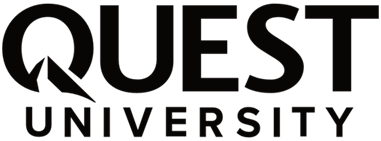“I’ve really enjoyed getting to know more Quest faculty, all of whom have been wonderfully enthusiastic and supportive.”
-Alice Pearson ’20
Tell us about the unique project you’re working on.
For my Keystone, I’m identifying and cataloguing Dr. Marjorie Wonham’s shell collection, which contains about a thousand seashells from all around the world. It’s mostly molluscs—so things like mussels, clams, scallops, cockles and snails.
The collection has some really cool specimens and great potential as an educational tool; however, it has sat largely unused (except by a few lucky students in Dr. Wonham’s classes) because there is no record of everything it contains. Our hope is that once it’s catalogued, the shells can be shared more widely, both through exhibits and displays, as well as by Tutors for other courses.
I’m so excited about this project! I’ve really enjoyed getting to know more Quest faculty, all of whom have been wonderfully enthusiastic and supportive.
Why is an archive space at Quest important?
The archive is such an important space, both physically and institutionally, because it provides students with an academic workspace to spread out and really get to know the materials they’re working with.
It also creates an academic legacy at Quest and provides students with an opportunity to engage with and build upon previous research. Even though the archive is very new, there’s already a great community among the faculty and students who were involved in its creation and current research projects.
Has Marjorie’s seashell collection taught you anything unexpected?
Every time I work with the shells, I’m surprised by all the subtle nuances and variability in them. I’ve been looking at shells through a variety of lenses, and I keep coming back to the mathematical one. It’s pretty amazing that you can explain such a wide variety of forms using just three parameters in a mathematical model.
There’s a video called Logarithmic Spiral Mollusc Shells on YouTube. It shows the shells morphing from one form to another. It’s mesmerizing!
We’ll check it out! Tell us why you chose Quest.
I chose Quest because of the Block Plan, small campus size and the location. I liked the idea of being able to really focus on one subject, as well as the flexibility you get from having to take only one course at a time.
What’s been your favourite class so far?
That’s a hard one! I took Marine Zoology at the start of my second year with Dr. Tse-Lynn Loh. It was the perfect blend of classroom lecture-style learning and first-hand experience.
I’ve had lots of great classes, but some of my favourites have been What Is Life, Marine Zoology, Plant Biodiversity, and Death of the Author.
Any plans for life after Quest?
Nothing concrete yet. I’ve been looking at a few different options in Northern Alberta. I’ll probably be doing some sort of field work or tree planting, which I did last summer, but I’m waiting to see what comes up within the next few months!
